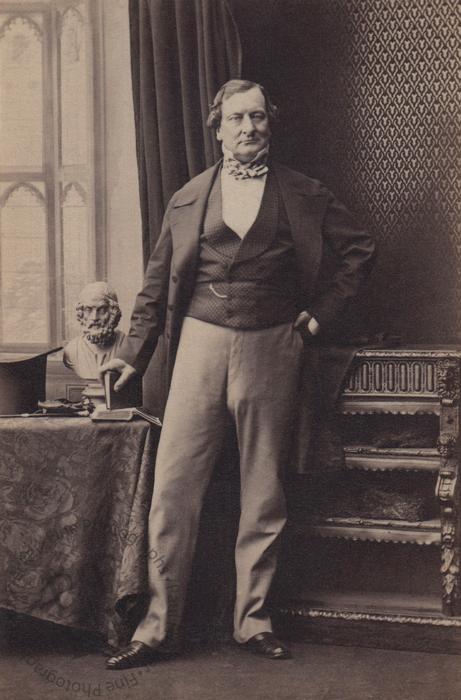Thomas Phinn, Esq.
(1814-1866)
20 October 1860
Volume 2, page 47, sitting number 1487.
The barrister and Liberal politician Thomas Phinn was born in Bath in 1840, the eldest son of surgeon Thomas Phinn and his wife Caroline née Bignell. Educated at Eton and at Exeter College, Oxford, he was called to the bar by the Inner Temple on 20 November 1840. During his career he held various positions in the Admiralty. He became a QC in 1854. From 1852 to 1855 he was the Member of Parliament for Bath.
He died on 31 October 1866 at 50 Pall Mall, London, leaving an estate valued at £20,000.
His death was reported in the Cheltenham Looker-On (3 November 1866). ' The announcement of the death of Mr Thomas Phinn, formerly M.P. for Bath, and recently Secretary to the Admiralty, will be received with surprise by his numerous friends. The death of Mr Phinn occurred suddenly on Wednesday evening, at his residence in Pall Mall. He appeared late in the afternoon in his usual health, and had made arrangements with Mr Thomas Morris, the well-known Army tailor, for an equipment to go and visit his friend, Lord Clarence Paget, in the Mediterranean. Between seven and eight o'clock he returned home to dine, and had scarcely entered his apartment before he complained of illness, and was immediately seized with inward pains in the region of the heart. Medical aid was instantly sought, but he died in a few minutes in the arms of his valet. The late Mr Phinn was called to Bar at the Inner Temple in 1840, and long enjoyed an excellent practice on the Western Circuit. He was for some time M.P. for Bath, was recorder of Devonport and Plymouth, was Judge Advocate of the Fleet, and Counsel to the Admiralty, having previously held the office of Secretary to the Admiralty. During his career in Parliament he uniformly supported Free Trade measures, and was what is termed an extreme Liberal. The late Mr Phinn was a son of Mr T. Phinn, a surgeon in Bath, and was educated at Eton and Exeter College, Oxford.'
According to his obituary in the Illustrated London News (10 November 1866), 'the learned and lamented gentleman' was 'an able and highly-respected lawyer and politician' with a 'considerable practice' and 'a high and popular position.'
[From an album compiled by Lady Augusta Frances Hoare, wife of Sir Henry Ainslie Hoare, 5th Baronet.]

